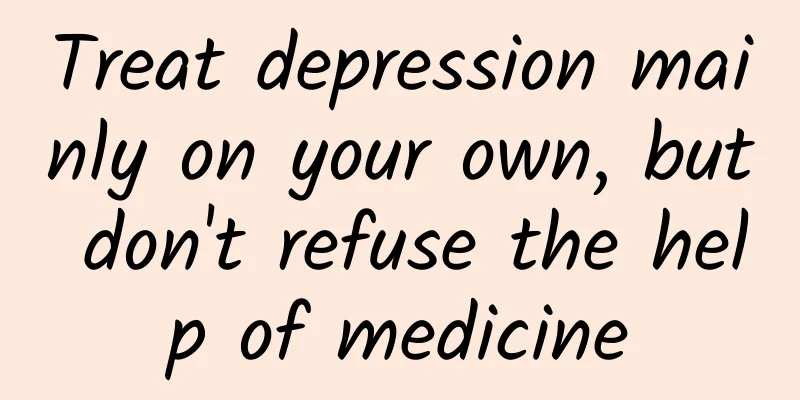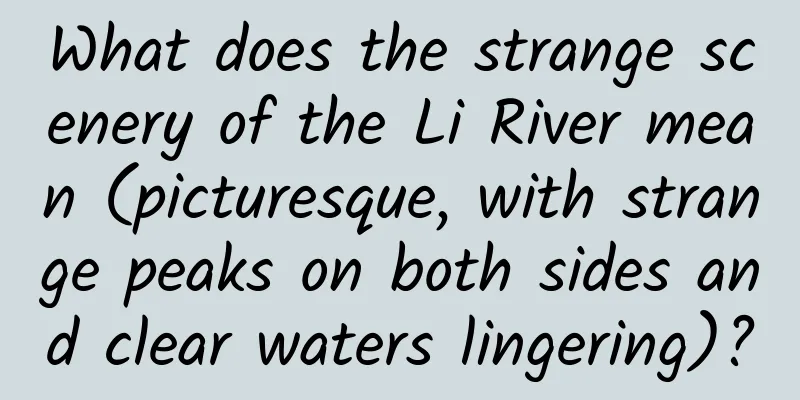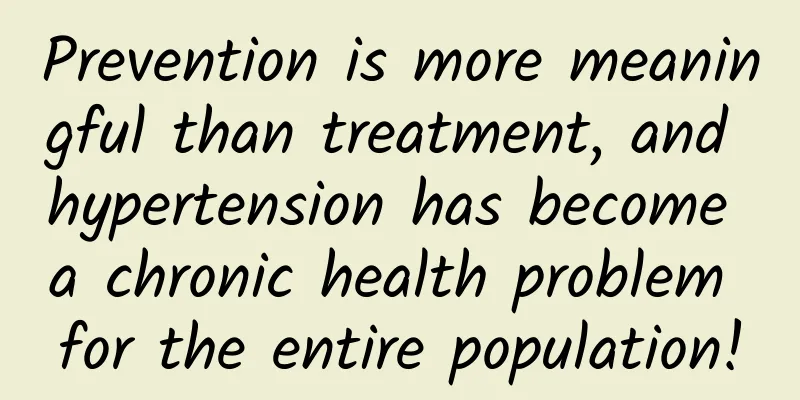Treat depression mainly on your own, but don't refuse the help of medicine

|
When Huazi was teaching pharmacology at a university, a student asked, "Teacher, I suffer from depression, but I don't want to take medicine. I think depression is a problem with my mind. The mind itself is empty, and only I can get out of it. What's the use of medicine?" Huazi told the students that although the ultimate cure for depression depends mainly on oneself, depression is not a nihilistic mental illness. When suffering from depression, the level of neurotransmitters in the brain will change, and the use of drugs can regulate the level of neurotransmitters and relieve symptoms more quickly. 1. The relationship between depression and neurotransmitters In the human brain, the transmission of signals between nerve cells needs to be carried out through neurotransmitters. When the level of neurotransmitters decreases, the excitability of the nerves will weaken, and symptoms such as low mood, decreased speech, self-blame, pessimism and world-weariness will appear. In severe cases, suicidal behavior may occur. There are two main neurotransmitters in the brain that affect emotions, one is serotonin (5-HT) and the other is norepinephrine (NA). The negative emotions of patients with depression will affect the secretion of neurotransmitters through the autonomic nervous system, causing a decrease in 5-HT and NA levels and causing depressive symptoms. 2. Mechanism of drugs for treating depression There are two main pathways for the elimination of 5-HT and NA in the interneuronal space. One pathway is that they are partially decomposed by hydrolases, and the other pathway is that they are partially reabsorbed by nerve cells. Drugs for treating depression can inhibit these two elimination pathways, increase the level of neurotransmitters in the interneuronal space, and thus improve the symptoms of depression. Before 1960, humans could only use electroconvulsive therapy to treat depression, and drugs to treat depression were not available until 1960. The first antidepressants used were tricyclic and tetracyclic drugs (named after the ring-shaped atomic structure in the drug molecules), and after 1990, selective 5-HT reuptake inhibitors began to be used. 3. Commonly used antidepressants Tricyclic antidepressants include imipramine, doxepin, amitriptyline and other drugs; tetracyclic antidepressants include maprotiline, mianserin and other drugs. The two types of drugs have similar effects and can inhibit the reuptake of 5-HT and NA to play an antidepressant role. In comparison, the side effects of tetracyclic antidepressants are slightly lower than those of tricyclic antidepressants. However, both types of drugs are not very selective for neurotransmitters. They act on the peripheral nervous system as well as the central nervous system. They also have anticholinergic effects, so they have more side effects and can cause adverse reactions such as dry mouth, constipation, urinary retention, orthostatic hypotension, arrhythmia, headache, fatigue, muscle tremor, ataxia, etc., and are now rarely used. The drugs currently used for antidepressant treatment are mainly selective 5-HT reuptake inhibitors, which have the same efficacy as tricyclic drugs, but with fewer adverse reactions and good safety. Among them, fluoxetine, paroxetine, sertraline, fluvoxamine, and citalopram are known as the "five golden flowers" of antidepressant drugs and have become the main means of treating depression. Among the current antidepressants, there are also drugs such as venlafaxine, duloxetine, and trazodone that inhibit the reuptake of 5-HT and NA at the same time. They have good safety and tolerance and mild adverse reactions. Psychiatrists are needed for diagnosis and treatment, and the corresponding antidepressants should be selected according to the different types of reduced neurotransmitter levels in patients with depression. To sum up, although depression is related to mental factors, its pathogenic mechanism is the reduction of neurotransmitter levels. In the process of treating depression, the rational use of antidepressants can quickly relieve symptoms and help oneself get out of low mood. It should be noted that antidepressants should be used under the guidance of a psychiatrist. It usually takes more than half a year to treat, and the medication cannot be stopped at will. If you have any questions about medication, please consult a doctor or pharmacist. I am pharmacist Huazi. Welcome to follow me and share more health knowledge. |
<<: The operation is over, but the patient still cannot breathe. Beware of myasthenia gravis
Recommend
What is chicken breast? The protein content of chicken breast
Chicken breast is the soul ingredient of the Kung...
Can I drink chrysanthemum and wolfberry tea at night? What are the effects of drinking mint chrysanthemum tea when staying up late?
Modern people are becoming more and more aware of...
What lubrication should I use for dry private parts?
If a woman's private parts are dry, the harm ...
Girls have moles on their right thumb
In mole physiognomy, the positions and sizes of m...
What to do if there is an odor in the female urethra
Whether male or female, if there is an odor in th...
Can I eat before having an abortion?
Can you eat before having an abortion? This quest...
Should I take medicine three times a day with my meals? Many people take it wrong...
When we take medicine, we often see "three t...
Can I walk more if my buttocks are around my neck for one week at 33 weeks?
When a woman becomes pregnant and goes to the hos...
Damp symptoms
Pubic lice is a disease caused by poor hygiene. A...
Strong Yang turns weak and then strong Yang appears again
Preparing for pregnancy has always been a concern...
Brown color on underwear during early pregnancy
Women who are about to get pregnant should pay gr...
What medicine to take to treat menopausal irritability
When women reach menopause, their mood is very ir...
What are the symptoms of physiological ovarian cysts?
Physiological ovarian cysts are a very common gyn...
Various tests during pregnancy
From the time a woman is diagnosed with pregnancy...
Dull pain in the lower left abdomen of a woman
Pain in the human body is inevitable in daily lif...









